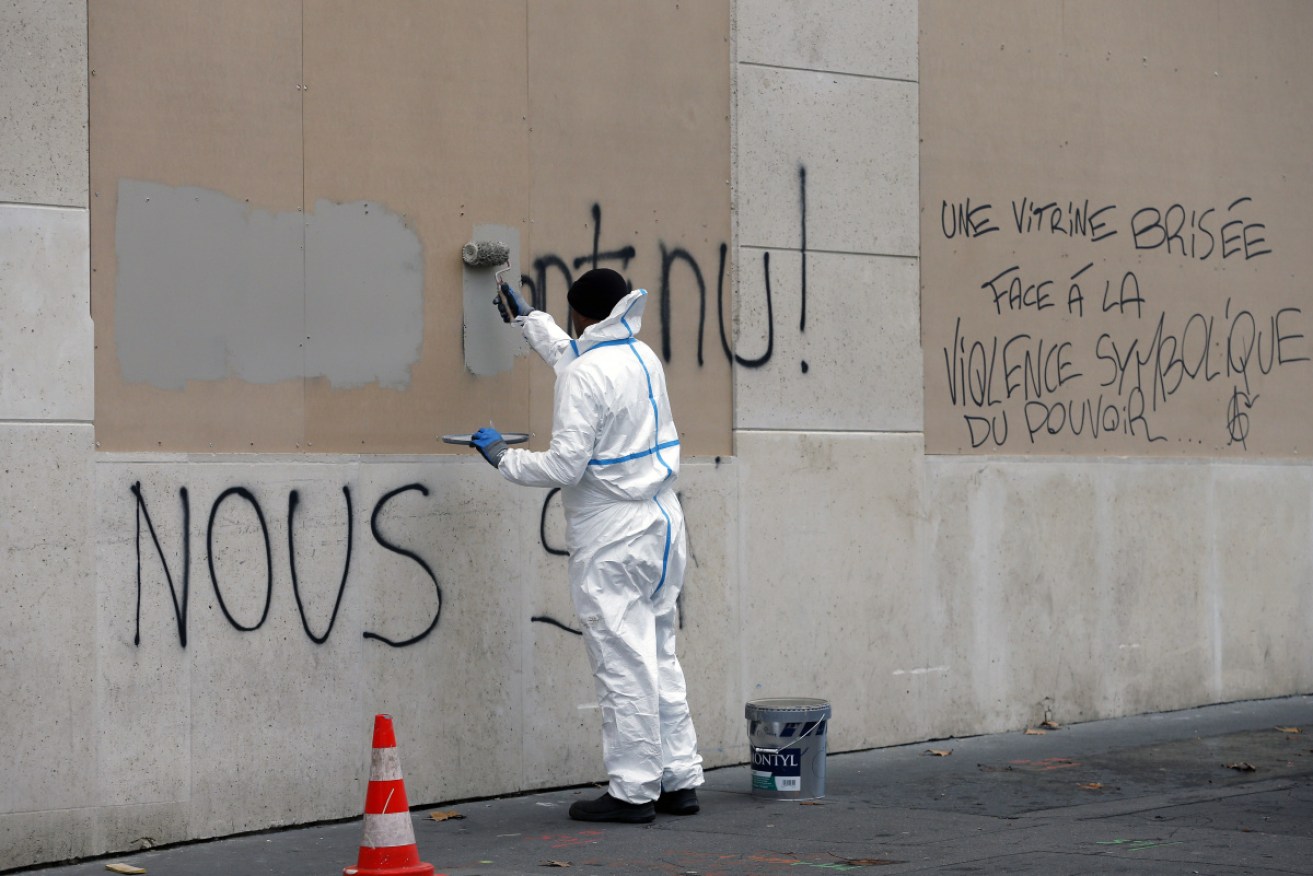France counts cost of Paris riots as unrest continues


In a fourth week of protests in Paris, police used tear gas and water cannons in an attempt to disperse demonstrators. Photo: Getty
Paris is cleaning up after yet another destructive weekend of “yellow-vest” riots as French finance minister Bruno Le Maire describes the continuing protests as “catastrophe” for the nation’s economy.
Mr Le Maire’s assessment comes after a fourth weekend of anti-government protests wreaked havoc in the heart of the nation’s capital, which saw stores and national monuments closed to the public.
He said the situation will have an “important impact” on the “attractiveness of France” and “a severe impact” on the French economy.
“It’s a catastrophe for commerce, it’s a catastrophe for our economy,” he told Reuters on Monday morning (Australian time), after walking around some of Paris’ vandalised shops.
“We must expect a new slowdown of economic growth at year-end due to the ‘yellow vest’ protests,” Mr Le Maire said, adding that he would provide more details in coming days.
Workers in Paris swept up broken glass and towed away burnt-out cars after anti-government protesters on Saturday hurled missiles, torched cars and vandalised shops and restaurants over concerns about spiralling fuel prices and the cost of living.
Mr Le Maire said protestors caused more widespread damage than last week’s rioting, noting however that there had been fewer injuries.
According to Reuters, French retailers have collectively lost an estimated $1.1 billion since the beginning of the “yellow vest” protests on November 17.
The restaurant industry declined by between 20 per cent and 50 per cent following last week’s protests, Mr Le Maire said.
Meanwhile, demonstrators in Iraq and Europe donned symbolic yellow vests as they took to the streets in similar anti-government protests.
On Saturday, police arrested 70 people in the Belgian capital as protesters blocked a highway linking Brussels to the town of Rekkem in Flanders, located near the French border.
On Friday, dozens of people in Baghdad staged a non-violent protest, demanding the government improve services offered in Basra, south of Iraq, bordering Kuwait.
For France, the upheaval in the Christmas shopping season has dealt a heavy blow to retailing, the tourist industry and the manufacturing sector as road blocks disrupt supply chains.
On Saturday, the Eiffel Tower and other monuments and museums closed their doors for security reasons, as did top department stores on what should have been a peak shopping day.
Gregory Caray, owner of two furniture shops in the heart of Paris, said he was relieved to see that his shop had not been vandalised, but the protective wooden boards over its windows were plastered with graffiti.
“You can understand the yellow vests movement. But this is completely unacceptable. It has been three weekends in a row now. Look around you, everything is broken, damaged. All the shops had to close and spend money to shut everything up, and it happens every week,” he told Reuters.
French President Emanuel Macron’s last major address to the nation was on November 27, when he said he would not be bounced into changing policy by “thugs”.
“The President of the Republic will … make important announcements,” government spokesman Benjamin Griveaux said on LCI television on Sunday. He gave no other details about the timing, content or format of the speech.
“However, not all the problems of the ‘yellow vest’ protesters will be solved by waving a magic wand,” he said.
Mr Macron will give a renewed address to the nation on Monday.
-with AAP








